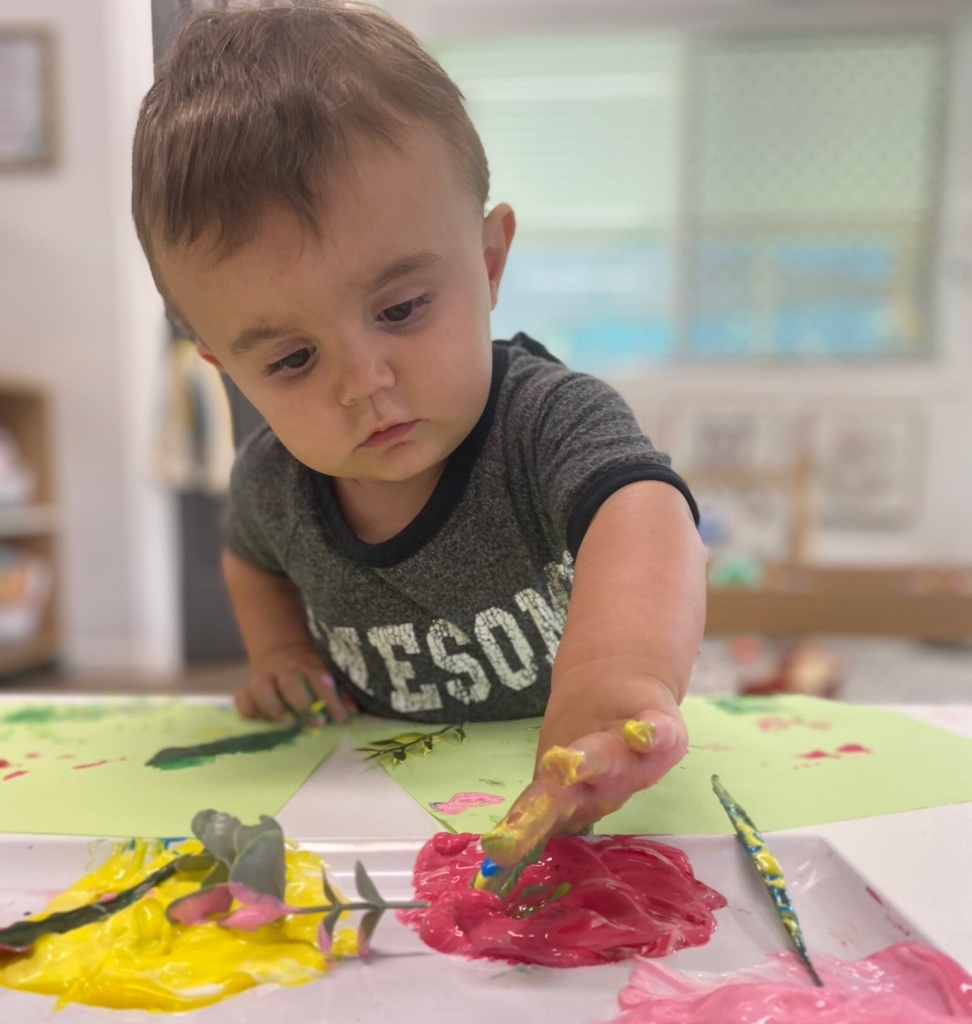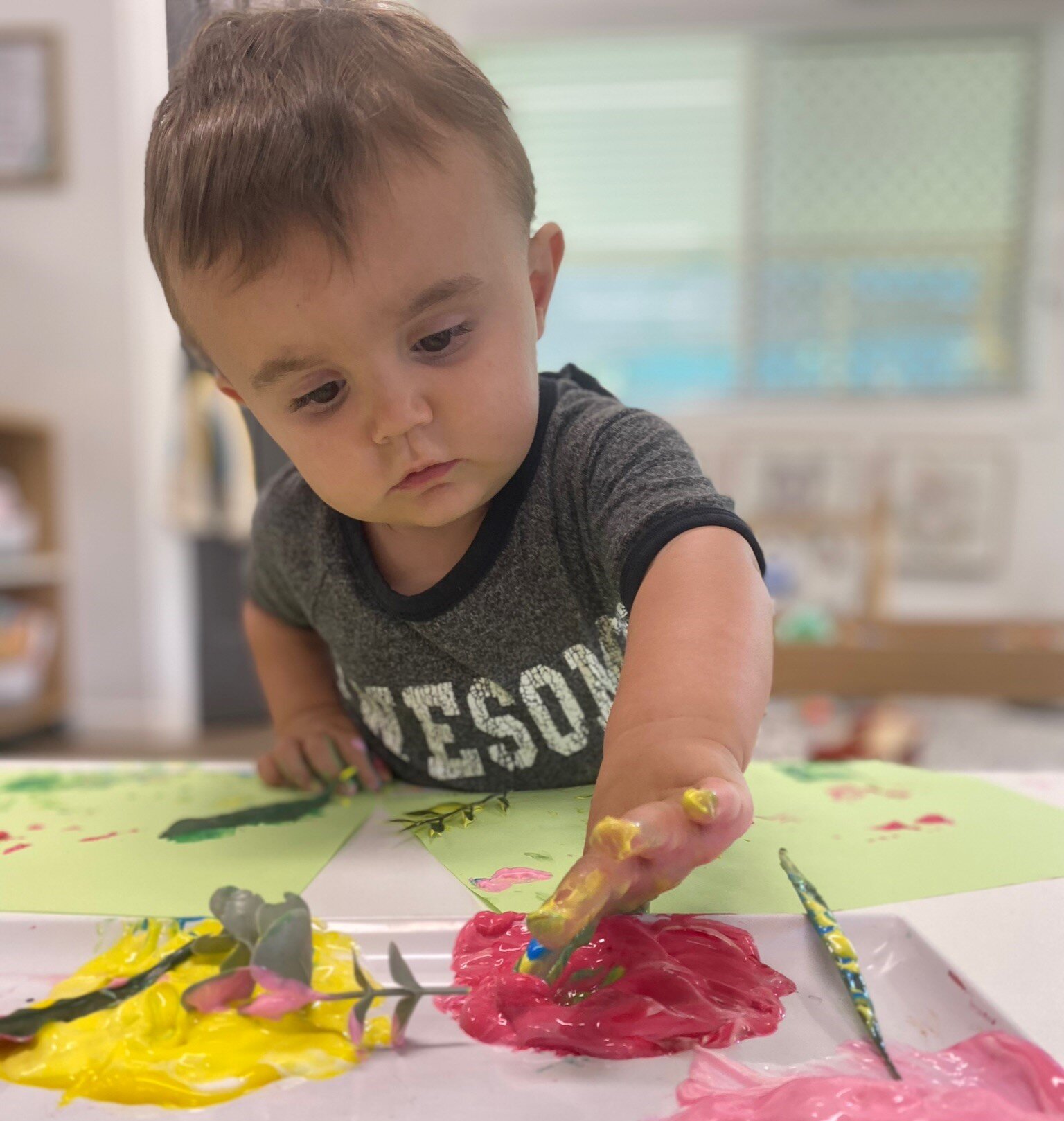From about eight months of age, baby is ready for some creative play with your help and guidance. Baby can now lift and hold things and is starting to explore more. Baby play is all about learning new things and there are lots of things to start showing and teaching baby. Encouraging and creating lots of baby play environments will assist them in continuing to develop their fine and gross motor skills, language and visual perception play.

Fun baby activities to try at home
Finger painting
Finger painting is a wonderful place to start your baby play fun. If you are concerned about your little one eating the paint, you can make your own safe finger paints easily by mixing baby rice cereal as per instructions and then adding a little food colouring. Sit baby in their high chair, in the bath or even outside with some paper and finger paints and let them explore the colours and textures.
Stickers
If you are after a less messy baby play idea, why not try stickers? Stickers are fun to watch baby interact with. You will need to help baby remove them from the backing sheet but they are often fascinated with stickers sticking to their hands, feet and clothes. Once baby learns that they stick where you put them, give them some paper and start sticking them on. Stickers are great for fine motor skills. Keep some handy in your bag for times when you need to keep baby entertained when out and about.
Kitchen play
Bowls, cups and spoons are an easy, instant baby play idea – and great for when you are in the kitchen and baby wants to come, too. Sit baby on the floor with a variety of metal, plastic and wooden tools like spoons, cups and bowls and show baby how to play. Stack and knock over the cups, use the spoons as drumsticks and even put all the spoons in a bowl and tip them out again. Babies love to make noise so banging a spoon on a bowl or saucepan is a favourite way to play.
Playdough
Playdough is wonderful fun for babies from about eight or nine months old and is an activity that children find engaging well into primary school. Each developmental stage has new benefits of using playdough. Starting out with playdough is more about poking and prodding. Roll some balls with the play dough and show baby how to bang them flat with their hands. Squish some playdough and give them some tools and just let them dig, stab and smoosh it. Playdough can be purchased ready-made or you may like to make a big batch at home. Just remember to make it non-toxic in case baby decides to give it a taste test!
Discover how the unique curriculum at Little Scholars can enhance your child’s development. Contact us today.
